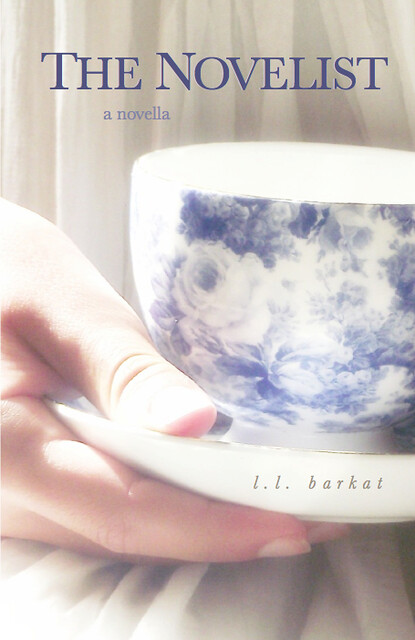
Chapter 1
THE END.
She typed finality across the center of the page and
closed the laptop with a snap.
What would it be this morning? She turned to her tea
cabinet and opened it quietly. Maybe a green jasmine. She could tweet about it
later and make Megan smile. Megan would have tweeted something about a new Earl
Grey, and they would share fantasies about each other’s kitchens and tea cups.
Or did Megan use a mug?
This would explain it. Why she typed, “The End.” This
lack of attention to detail. Shouldn’t she know by now what Megan took her tea
in? Hadn’t she read a few hundred tweets or more, about English Breakfasts and
new green blends, a white tea for afternoon, and a cataloging of how many cups
Megan had drunk by 9 pm? She had. Over and again, she had.
But she could not recall Megan’s
imbibing-receptacle-of-choice. A novelist would remember these things. She
would even be willing to research about tea, wouldn’t she? To create a
believable character based on Megan? An authentic character who knew her basic
pekoes from her golden tippys?
Novelists were like that. The real ones, anyway. The
ones that Nobel Prize winner Mario Vargas Llosa wrote about in Letters to a Young Novelist.
Flaubert, Proust, Thomas Wolfe.
She hadn’t made it past page 5 in Proust, had gotten
hopelessly lost in his detailed descriptions and a vague sense that maybe he
was in love with his mother. Really in love. Like maybe he would like to nurse
again, but not quite like that. This could be wrong. She could have heard that
somewhere and not picked it up by page 5 at all.
And had she even read Wolfe? She couldn’t remember that
either, beyond what Vargas Llosa quoted, which she had just read on Monday. Thomas
Wolfe likened the life of a writer to being infected by a worm that fed on his
insides.
A worm?
It got worse. Vargas Llosa loved this image, had thought of it
himself and was simply quoting Wolfe to say, You see? Being a writer is like
having an insatiable parasite inside you.
Vargas Llosa’s worm was a tapeworm, and he had rolled out a
few anecdotes about real people with real worms, including a few
nineteenth-century ladies who purposely swallowed tapeworms that would eat
their insides out, for the sake of social effect—along the lines of impressing
the in-crowd with their stunningly slender waistlines.
She hated worms. Her own German grandmother had strung
them on fishing lines, turned them loose by the hundreds in her garden, even
smashed the “bad” ones between her thumb and middle finger, until their green
insides popped out like a bilious pearl.
Laura put her hand to the edge of the granite
countertop, feeling suddenly sick. A light sweat broke out across the back of
her neck and a warmth spread through her limbs.
She’d better sit down on the floor, right here. Maybe
someone would find her dead a few months from now, when her bills went unpaid
and the repo guys jimmied the door.
Her laptop was plugged in, though, and the Word file
was still open on the desktop—a single page of a novel she had never started,
with the words “The End” typed smack in its center. As she sank to the floor,
she managed a laugh. “The End.” They’d think it was a suicide note, wouldn’t
they?
And
there she’d be, where she was now, finally, thankfully. Cheek to the cool oak
floor, having died of a worm.
Subscribe to:
Posts (Atom)